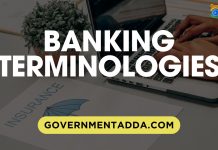1. Which of the following body is the regulator of Capital Market
a. Reserve Bank of India (RBI)
b. Securities and Exchange Board of India (SEBI)
c. Telecom Regulatory Authority of India (TRAI)
d. NABARD
2. Which of the following is/are instrument(s) of Capital Market?
a. Equity instruments – stocks/shares, dividends etc.
b. Debt instruments – bonds, debentures, etc.
c. Both (a) and (b)
d. None of the above
3. If an investor is directly buying shares or bonds from a company, then he is dealing in –
a. Primary Market
b. Secondary Market
c. Both (a) and (b)
d. None of the above
4. If an investor is buying / selling shares or bonds from other investors, rather than the issuing company, then he is dealing in –
a. Primary Market
b. Secondary Market
c. Both (a) and (b)
d. None of the above
5. What is the full form of IPO?
a. Initial Private Offering
b. Initial Partnership Offering
c. Initial Public Offering
d. Interest Private offering
6. When a private company first time issues shares to the public, then it is known as –
a. IPO
b. FPO
c. Rights Issue
d. Preferential Issue
7. Follow-On Public Offering (FPO) by a company is done after –
a. IPO
b. Rights Issue
c. Preferential Issue
d. None of the above
8. FPO deals in the –
a. Primary Market
b. Secondary Market
c. Money Market
d. None of the above
9. Rights Issue is offered to –
a. general public
b. existing shareholders
c. CEO of the company
d. other companies
10. Preferential Issue is offered to –
a. selected people who already has a stake in the company
b. selected people who doesn’t have a stake in the company
c. selected people who may or may not have stake in the company
d. none of the above
ANSWER :-
1)b. Securities and Exchange Board of India (SEBI)
2)c. Both (a) and (b)
3)a. Primary Market
4)b. Secondary Market
5)c. Initial Public Offering
6)a. IPO
7)a. IPO
8)a. Primary Market
9)b. existing shareholders
10)b. selected people who doesn’t have a stake in the company












